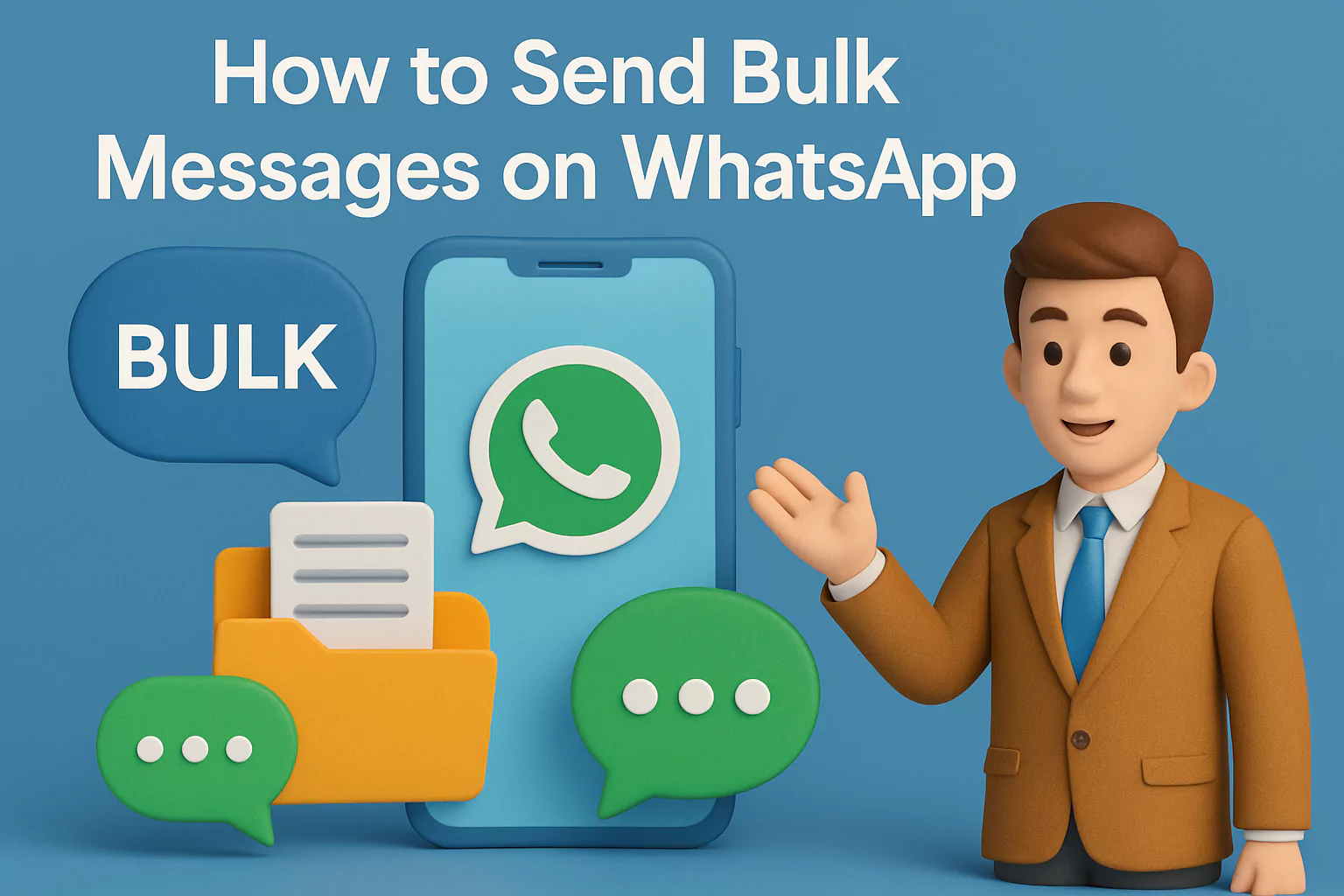
How to Send Bulk Messages on WhatsApp
No longer is WhatsApp a personal message app, it has evolved into an effective business tool to reach the audience. Whether a small business, a startup, or a growing enterprise, WhatsApp is a direct and fast way to approach customers. But what happens when you have hundreds or thousands of people you need to receive messages from? That is where bulk messaging enters the picture. In this blog, we will learn how we can send bulk messages in WhatsApp effectively without having to break any rules.
Why Use WhatsApp for Bulk Messaging?
With an excess of two billion users across the globe, WhatsApp is among the most popular messaging apps on the planet. In contrast to emails or SMS, once sent WhatsApp messages are normally read immediately. This implies that companies will have higher open rates, quicker responses, and improved interaction. Send promotional offers, order updates, reminders, or announcements in a familiar and personalized way using WhatsApp.
Is Bulk Messaging Allowed on WhatsApp?
It helps to know what is permitted before you get into the bulk messaging. WhatsApp has tough rules over spam messages and unsolicited communications. Without authorization, sending bulk messages could lead to a ban on your account. But, WhatsApp also offers bulk messaging via formal practices such as Broadcast Lists and the WhatsApp Business API, so long as you adhere to the rules and send to users who have signed up for updates.
Methods to Send Bulk Messages on WhatsApp
There are a few ways to send bulk messages, depending on the size of your audience and your business needs.
- Using WhatsApp Broadcast Lists: This approach is ideal when dealing with smaller-scale businesses. It is possible to make a broadcast list and add a message to 256 individuals at a time. Each of the recipients will see the message in the form of a personal chat. But there is a catch, your contacts must have saved your number in their phone. Otherwise, they would not be able to get the broadcast message. This technique is an easy one in size.
- Using WhatsApp Business API: The WhatsApp Business API would be what you need to reach more people. It is medium- and large business-oriented and can be combined with customer relationship management (CRM) services, automation processes, etc. Using this API, it is possible to send a message to thousands of users, save templates of messages, and automate responses. It should be permitted by WhatsApp and there are limitations on its content and sendings.
- Third-Party Tools and Platforms: There are platforms which help to use the Business API of WhatsApp easily, with user-friendly dashboards and automation features. As an example, Cloud Gateway is a sanctioned and secure online platform that will allow firms to communicate in bulk chains without difficulties. These tools are able to handle every bit of the contact list uploads, scheduling, and monitoring of messages and does not need a lot of technical expertise.
Steps to Send Bulk Messages Using WhatsApp Business API
Here’s how you can get started with bulk messaging using the official API:
- Apply to get access to the WhatsApp Business API via a recognized partner.
- Configure your career WhatsApp Business profile by adding your company name, logo, and description.
- Select a stable platform with which the API is compatible and has functionalities such as contact management and automation.
- Load your confirmed contact. Ensure that every recipient is a willing recipient of your messages.
- Develop message templates and have them approved by WhatsApp. Templates may consist of order confirmation, promotions, appointment reminder, etc.
- Set or deliver your messages. It is also possible to automate replies to user interaction.
By following these steps, you ensure that your communication is both effective and compliant with WhatsApp’s policies.
Best Practices for Effective Bulk Messaging
- Get Consent: Messages should always be sent to signed-up users.
- Keep It Simple: Keep it short and clear and relevant.
- Use Approved Templates: For promotional or transactional messages.
- Avoid Spamming: You should not over-message and at a high frequency.
- Focus on Value: Give helpful information such as offers, updates, or tips that would help the user.
They are essential practices to keep your trust and less the chance of being reported and blocked.
Conclusion
Mass messaging on WhatsApp can be a game-changer as far as businesses that want to reach their audience directly. When used properly it may result in improved relationships and engagement, and fewer dropped sales. Using broadcast lists to send smaller batches or the Business API to send larger batches, it is advised to respect the policies of WhatsApp and communicate on value-based communication. With an awesome plan and tools, you can capitalize on the sheer scale of WhatsApp right now.
